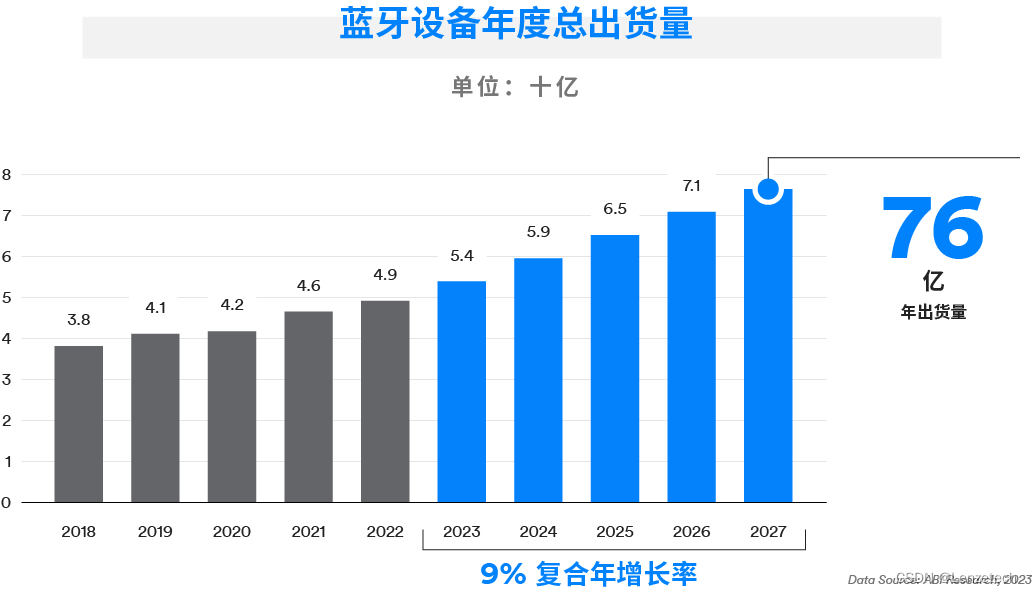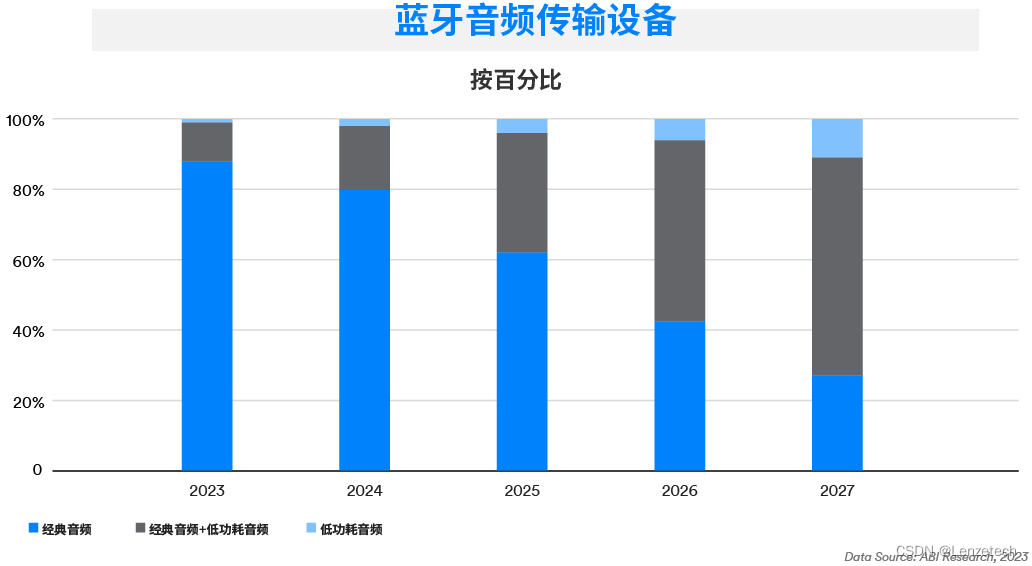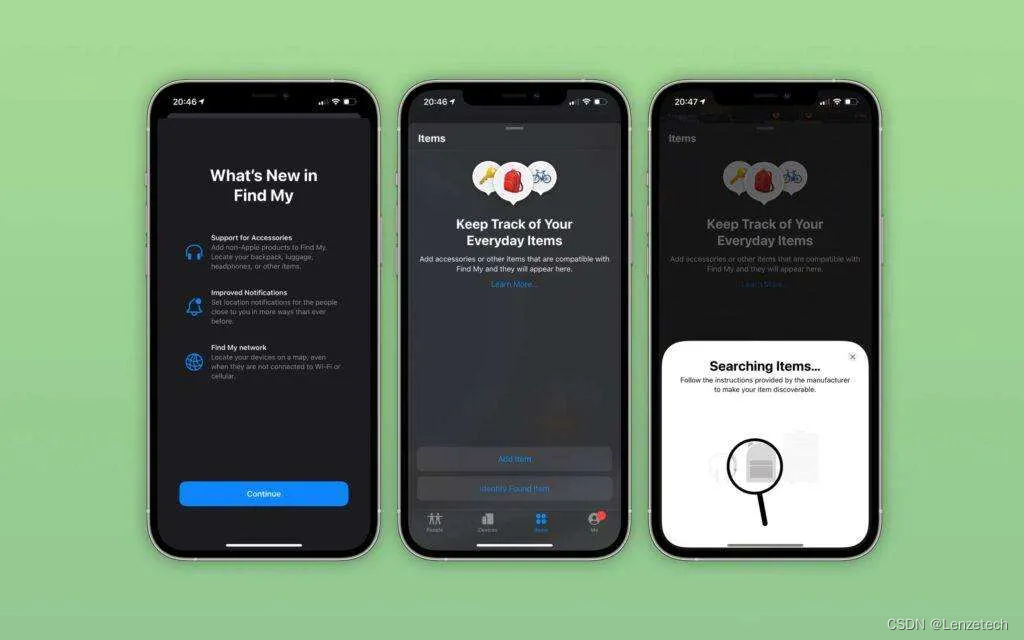Apple launched a new 13-inch MacBook Air notebook with an M2 chip in July 2022, which only supports Bluetooth 5.0 technology at the beginning of the market. According to Apple's official updated technical specifications, the notebook is now upgraded to support the faster and more reliable 5.3 standard.

Apple launched the 15-inch MacBook Air at this year's WWDC developer conference, and then updated the technical specifications page to show that the 13-inch model also supports the Bluetooth 5.3 standard.

All new Macs, iPhones, iPad Pros, Apple Watches, and second-generation AirPods Pro models released by Apple from September 2022 support Bluetooth 5.3. Bluetooth 5.3 has lower latency, stronger anti-interference, improved battery life, and improved transmission efficiency, security, and stability.
The Bluetooth Special Interest Group (SIG) released the annual report "The Latest Information on the Bluetooth Market in 2023", revealing the latest development trend of Bluetooth technology and its expanding influence in various application markets. The report provides a preview of recent developments in Low Energy Audio (LE Audio) and Auracast™ broadcast audio, and forecasts trends during the transition from Bluetooth Classic Audio to LE Audio. The report also examines the launch of a global standard for wireless electronic shelf labels (ESL), as well as growing emerging markets such as Bluetooth location services, with a total market size of 10 trillion units.

Low-power audio will bring new audio experience and drive market growth

Released last July, Bluetooth Low Energy Audio (LE Audio) brings further performance enhancements to Bluetooth's largest solution area - audio transmission. LE Audio introduces the new Auracast™ broadcast audio feature, which enables one audio source device (such as a smartphone, tablet, TV or public sound system) to broadcast an or multiple audio streams. Auracast™ broadcast audio opens up significant opportunities for innovation, including enabling personal and location-based audio sharing.
Analysts expect significant growth in Auracast™ broadcast audio devices and public venue deployments over the next five years, driving new audio experiences, increasing the value of Bluetooth audio peripherals and creating new scalability for hearing aid solutions options, opening up new opportunities for audio accessibility. It is estimated that by 2030, 2.5 million venues around the world will support Auracast™ broadcast audio capabilities. At the same time, the growth in deployment of Auracast™ broadcast audio will directly impact the adoption rate of LE Audio devices.
Electronic shelf labels are becoming the new high-volume market

With the release of the wireless standard for the electronic shelf label market, Bluetooth technology will assist the retail industry in its next phase of digital transformation, providing a better consumer experience for stores and shoppers. Electronic shelf labels provide precise automated pricing and increase access to real-time promotions and product information for a more satisfying and integrated omnichannel experience. Shipments of Bluetooth ESL devices are expected to reach 334 million units by 2027.
Bluetooth Item Finder

High accuracy is driving the widespread use of Bluetooth item finding solutions, which has been a major contributor to the growth in Bluetooth location service device shipments. The introduction of the Samsung Galaxy SmartTag and Apple AirTag last year further fueled the widespread acceptance of innovations in personal item finding. According to ABI Research, by 2026, 140 million Bluetooth personal tracking devices will be shipped annually. At the same time, the arrival of high-precision distance measurement in the future will enable Bluetooth to better serve the growing number of secure access applications for keyless entry and smart home access control applications.
Lenz Technology has independently developed wireless radio frequency and low-power Bluetooth BLE5.2 chips and has global intellectual property rights. It provides "software and hardware commonality" solutions and cores for Bluetooth master fully integrated chips for the AIoT Internet of Things field and individual consumers. Devices, supporting a full range of APP software platform custom development. The designed Bluetooth chip solution is used in scenarios such as smart wearable devices, Bluetooth indoor navigation, smart home, medical health, sports and fitness, data transmission, remote control, personal peripherals and AIoT Internet of Things. (tingting is a brand of Lenze Technology, which mainly provides Apple Find My service and applies it to major IoT products)